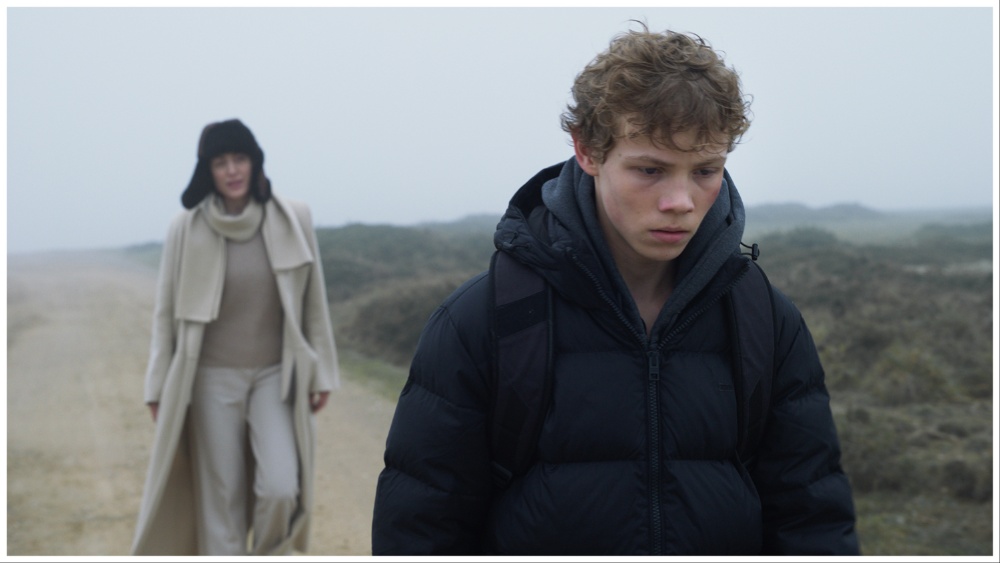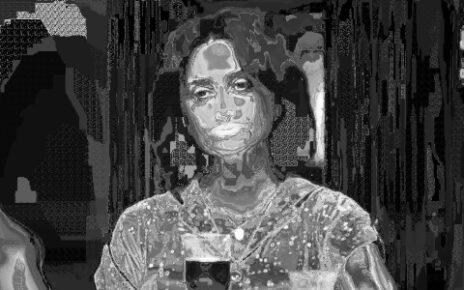“Not a Word,” which is being sold by international sales agency Beta Cinema, will have its world premiere at the Toronto Film Festival in the competitive Platform section. Variety speaks to the film’s writer-director, Hanna Slak, and debuts its trailer.
“Not a Word” tells the story of a relationship crisis between a parent and her teenage son. Maren Eggert, who won the best acting award at the Berlin Film Festival for “I’m Your Man,” plays an ambitious orchestra conductor, Nina. Jona Levin Nicolai (“The Net,” Netflix’s “The Grimm Reality”) plays her moody son, Lars. Following the death of a girl at Lars’ school, the boy has a mysterious accident, but refuses to talk about it. Nina decides to take a break from city life and together they head to their vacation home on an island on the rugged Atlantic coast. As a storm gathers, their brittle relationship, wreathed in silence, is pushed to breaking point.
In the film’s end credits, Slak includes a dedication to her mother, and she confirms that she has drawn on her own relationships – both with her mother and her own relationship with her children – when crafting the film.
“It’s very much a film that focuses on a single relationship,” she says. “It focuses on the relationship between a mother and a child, a son, but at the same time, it explores different nuances and the depth of this relationship. There is a lot of me in the mother; there’s a lot of me in the child. There is my mother in the mother; there’s my mother in the child. There are mothers that I know and children that I know in all the characters.”
She comes from a family of artists, she explains: both her parents were filmmakers.
“My mother especially has had a huge influence on me as a director. She’s retired now, but she was a sound designer, which was quite unusual as a profession for women in the 70s and the 80s, when she was at her most active. She was an amazing artist, and she had an amazing career. She really made an impact on film in the region, on the way sound was utilized.”
https://youtube.com/watch?v=oRffGCrvuCI%3Fversion%3D3%26%23038%3Brel%3D1%26%23038%3Bshowsearch%3D0%26%23038%3Bshowinfo%3D1%26%23038%3Biv_load_policy%3D1%26%23038%3Bfs%3D1%26%23038%3Bhl%3Den-US%26%23038%3Bautohide%3D2%26%23038%3Bwmode%3Dtransparent
She adds: “So yes. There is a lot of my mother, of me growing up with a mother who is an artist to whom her artistic career was crucial, existentially crucial, not only in a financial way, but in the sense of her identity. And then myself becoming a mother and being an artist for whom a career also is something crucial and existentially crucial for my identity.”
For Slak, it is important for parents to have fulfilling careers, and for artists to have fulfilling personal relationships, rather than to have to choose between the two.
“There is a kind of narrative in the public [domain] that I have been observing for years: that in order to have a successful career, especially a successful artistic career, it’s impossible to be a good enough parent,” she says. “And, on the other hand, I wanted to draw from my own experience, and the experiences of people around me, and maybe ignite another thought: Is it at all possible to be a good enough artist without having those significant relationships, the experiences which are, of course, up and down experiences, which take us to the depths and to the heights of our lives? Can somebody be a truly great artist and have a truly fulfilling artistic career without living those experiences and those relationships as well?”

When Lars has his accident, Nina is preparing her orchestra for a performance of Gustav Mahler’s 5th Symphony, and the film’s soundtrack, composed by Amélie Legrand, is based on the symphony. Slak uses Mahler as an example to illustrate her point. “I don’t think his music would exist in the form that we know it if he didn’t have these kinds of experiences, because this was what he poured into the music: the life experiences that he lived through, his relationship with his wife, with his children, with his siblings, with his family.”
“So I would like to open another window in this public discussion, which is: It’s not only about choosing between either having an artistic career or being a good enough parent, or having serious attachments in your life – it doesn’t have to be parenting – but it’s more about: Is it possible to be really good at any of those things if you have to focus only on one of them?”
“Because I think that the true growth comes from learning on one side and implementing the knowledge on the other side. So that learning through our parenting or through our personal attachments brings us towards solutions in our work, maybe creative work, or maybe not creative work. Sometimes we find solutions in our relationships for challenges that we face at work. And sometimes we find solutions for our relationship in the challenges that we find at work. I think it’s one life, and it’s all very connected. We cannot really have this division of life into the professional section of our lives and relationships section of our lives. It doesn’t work because we need both, actually, and we can only grow from both.”

Another focus for the film is the consequences of violence, including the effects of violence on those who are not the direct victims of that violence, but who are nevertheless traumatized by the incident. It also looks at the consequences of silence that surrounds a violent incident, which is a form of violence itself and doesn’t allow “a certain truth or a certain problem to come to the surface.”
She adds: “To break the hold of this violence on a person there is a need to work through it and break the silence.”

Read More About:
Source: Read Full Article


